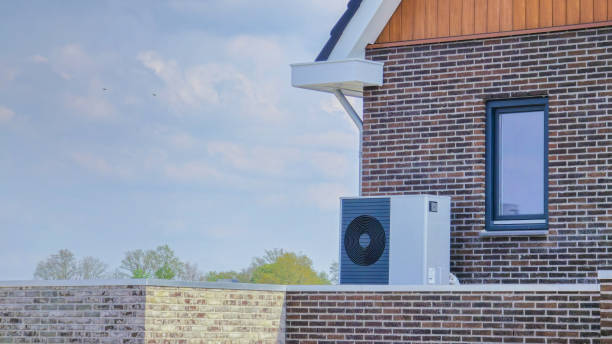Heat Pump Engineers: The Ultimate Guide to Efficient Heating and Cooling
Choosing the right heat pump engineer can mean the difference between a home that’s energy-efficient and one that’s frustratingly inefficient. From installation to maintenance, a skilled engineer ensures your investment pays off for years to come. Whether you're upgrading a boiler or building new, now's the perfect time to make the smart switch to heat pumps.

Introduction to Heat Pump Engineers
If youve been thinking about cutting energy costs and making your home greener, you've probably heard of heat pumps. But who makes these eco-friendly systems run smoothly? Thats where heat pump engineers come in. These professionals are the unsung heroes behind efficient heating and cooling systems across homes and businesses.
What is a Heat Pump Engineer?
A heat pump engineer specializes in the design, installation, servicing, and maintenance of heat pump systems, particularly air source heat pumps (ASHPs). They ensure your system is running efficiently, safely, and in compliance with local regulations.
Why Are Heat Pump Engineers Essential Today?
With rising energy costs and increasing awareness of climate change, heat pumps have become the go-to choice for sustainable heating and cooling. Engineers ensure these systems are correctly sized, installed, and optimized to save both money and energy.
Understanding Heat Pumps
What is an Air Source Heat Pump?
An air source heat pump service extracts heat from the outside aireven in cold temperaturesand transfers it into your home for heating. It can also reverse this process for cooling during summer.
How Do Heat Pumps Work?
The Heat Transfer Process
Heat pumps move thermal energy using refrigerants and compressors, similar to how a fridge worksbut in reverse.
Heating vs Cooling Mode
In heating mode, the pump absorbs heat from the outside and pushes it indoors. In cooling mode, it does the opposite.
Types of Heat Pumps
Air Source vs Ground Source
-
Air Source Heat Pumps (ASHPs): Easier to install, more common in urban settings.
-
Ground Source Heat Pumps (GSHPs): Require more space and excavation but offer higher efficiency.
Hybrid Systems
Combine traditional boilers with heat pumps for flexibility and energy optimization.
The Role of Heat Pump Engineers
Design & Consultation
Engineers assess your propertys heat load and energy efficiency, then design a system that fits.
Installation & Integration
They install heat pumps, connect to your central heating or underfloor system, and ensure compatibility with smart thermostats.
Routine Maintenance & Servicing
Routine service ensures efficiency, prolongs equipment life, and keeps warranties valid.
Troubleshooting and Repair
Engineers diagnose issues and carry out repairsfrom refrigerant leaks to faulty compressors.
Choosing the Right Heat Pump Engineer
Certifications & Qualifications
Look for certifications like:
-
MCS (Microgeneration Certification Scheme)
-
F-Gas Certification
-
NICEIC or equivalent
Experience in the Field
A proven track record is key. Choose engineers with several years of experience in both domestic and commercial installations.
Customer Reviews and Testimonials
Google reviews, Trustpilot ratings, and word-of-mouth are gold when vetting professionals.
Asking the Right Questions
Ask about:
-
Previous projects
-
Warranty coverage
-
Post-installation support
?? Heat Pump Services Offered
Site Survey & Feasibility Studies
Before installation, engineers conduct on-site evaluations to determine the best system for your property.
Custom System Design
Theyll tailor the setup to your buildings size, insulation, and user preferences.
Installation Services
From mounting the outdoor unit to connecting pipework, engineers handle it all.
Post-Installation Support
Support includes performance checks, maintenance reminders, and technical support.
? Heat Pump Suppliers & Engineers in the UK
Top-Rated Companies
Some of the most trusted names include:
-
Octopus Energy
-
Air Source Company
-
EDF Energy Solutions
Spotlight on Air Source Company
Their Expertise
Air Source Company stands out for their precision, innovation, and customer-first approach.
Services Offered
-
Free consultations
-
Certified installations
-
Comprehensive aftercare
Theyre a one-stop shop for air source heat pump supplierssolutions across the UK.
? Costs and Savings
Initial Investment
Installing a heat pump can cost between 6,000 and 12,000, depending on system size and complexity.
Government Grants & Incentives
UK homeowners may qualify for:
-
Boiler Upgrade Scheme (BUS)
-
Renewable Heat Incentive (RHI) (Legacy scheme)
Long-Term Energy Savings
Expect up to 3050% savings on heating bills, especially if replacing oil, LPG, or electric systems.
? Environmental Impact
Reducing Carbon Emissions
Heat pumps can slash CO? emissions by up to 70% compared to gas boilers.
Sustainable Energy Choices
When powered by green electricity, heat pumps offer a nearly zero-carbon solution for home heating.
Future of Heat Pump Technology
Smart Integration
Modern heat pumps sync with smart thermostats, weather forecasts, and energy tariffs for smarter operation.
AI in Energy Management
Artificial intelligence is being integrated into control systems for real-time optimization, learning your habits to reduce energy waste.
? Conclusion
Choosing the right heat pump engineer can mean the difference between a home thats energy-efficient and one thats frustratingly inefficient. From installation to maintenance, a skilled engineer ensures your investment pays off for years to come. Whether you're upgrading a boiler or building new, now's the perfect time to make the smart switch to heat pumps.
FAQs
1. What qualifications should a heat pump engineer have?
At a minimum, they should have MCS and F-Gas certifications, with additional training in heat pump installation and servicing.
2. How often should a heat pump be serviced?
Annually. Regular servicing ensures optimal efficiency and extends the system's life.
3. Can I install a heat pump myself?
No. Installation requires certified professionals due to refrigerant handling and system complexity.
4. Are heat pumps suitable for older homes?
Yes, especially if insulation is improved. Engineers can tailor systems for older properties.
5. What is the lifespan of a typical air source heat pump?
With proper maintenance, 15 to 20 years.
































